I don’t think anyone has any interest in this post.
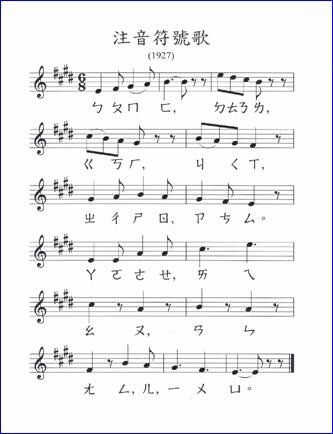
When people see my Chinese notes, they notice that I am annotating my new vocabulary words with the Bopomofo phonetic notation: ㄅㄆㄇㄈ, more formally known as 注音符號, which is the system that they use here in Taiwan to give phonetic readings; it’s a system that predates the advent of Pinyin in Mainland China.
And when people notice that my notes are annotated with ㄅㄆㄇㄈ, they always say, “Well, I’m sticking with Pinyin because…” It’s very important to them that I know why they’re sticking with Hanyu Pinyin. I didn’t even ask or bring it up; they just saw my notes and start their testimonial.
When they finish, sometimes I give them some of the reasons that I have switched to ㄅㄆㄇㄈ, but they DON’T CARE. It annoys them to hear my reasons. I will be surprised if any Mandarin learner has made it down this far in the post.
A couple years ago, I tried to get my classes to learn ㄅㄆㄇㄈ, but they were horrible HORRIBLE at it, so I gave up. Since ㄅㄆㄇㄈ and Pinyin are almost exactly parallel, they are horrible at Pinyin as well, but they’re comfortable with it, and honestly, it’s easier for me to see Pinyin mistakes and mark them wrong. So my classes stick with Pinyin and I don’t evangelize ㄅㄆㄇㄈ anymore.
So anyway, nobody asked, but here are the reasons I’ve switched to ㄅㄆㄇㄈ:
- I already learned it. It took, what, a couple of hours to learn it. I switched my dictionary to show me ㄅㄆㄇㄈ, and zero Pinyin. At first I’d forget a symbol, but then I hit the audio play button and could associate the sound. So now that I know it, and I got familiar with it, why wouldn’t I use it?
- The Taiwanese are better at it. I’m studying in Taiwan, my teachers prefer it, they don’t mess it up. Incidentally, it’s the 2nd Language speakers and the Mainlanders who send SMS text messages that are really good at Pinyin, but I’ve met more than one Mainlander who will tell me “CH” when I really need a “Q.” I haven’t found that among the ㄅㄆㄇㄈ-using Taiwanese folks.
- Pinyin looks too much like words. Pinyin is only supposed to be a phonetic guide, and to the Chinese people who use it, it totally is. However, I’m literate in a few languages that use the Roman alphabet, and when I see Pinyin my brain immediately sees a word. And then my brain does something interesting: it TOTALLY DISREGARDS the Chinese character that I’m supposed to be reading. And I mean TOTAL. DISREGARD. When I’m trying to become literate in a language, TOTAL DISREGARD is not my friend. I can force my eyeballs to look at a new character, but then the Pinyin is RIGHT THERE, calling to me. My familiarity with ㄅㄆㄇㄈ is not that automatic; I tend to look at the character first, and only check the ㄅㄆㄇㄈ if I’m not sure how to pronounce it.
- I can read Taiwanese-produced short stories that have in-line ㄅㄆㄇㄈ annotation. These are often charming, and therefore, readable. As an audience, I actually desire to continue reading until the end. I enjoy reading those short stories! The Pinyin-annotated readings, on the other hand, as a rule tend to be either totally mindless dialogs with everybody agreeing about something everybody already knows; or something horribly boring about the modern infrastructure of some industrial province; or something culturally offensive about how Westerners all collectively and simultaneously invented prostitution and then forced it upon the people of the Middle Kingdom.
So, the Taiwanese like to claim that ㄅㄆㄇㄈ is a more faithful representation of Mandarin phonetics, and I don’t care about that. As someone who is literate in English and French I’m long past the point where I need an alphabet to be completely consistent.
However I have to say that I haven’t totally abandoned Pinyin yet. Besides having to teach it to my students, for now it’s also easier to type characters using Pinyin, since I already know the keyboard.
In any case, there you go, the reasons that I use ㄅㄆㄇㄈ; reasons that no one has ever asked for. We can all now go back to our oyster omelets in peace.

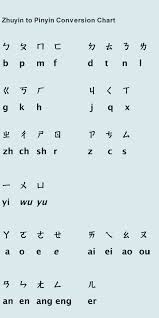
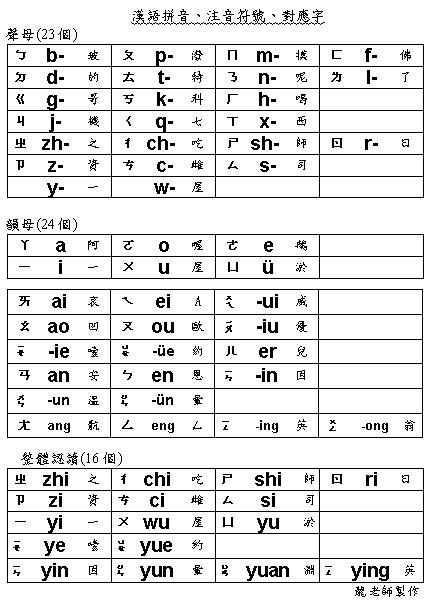
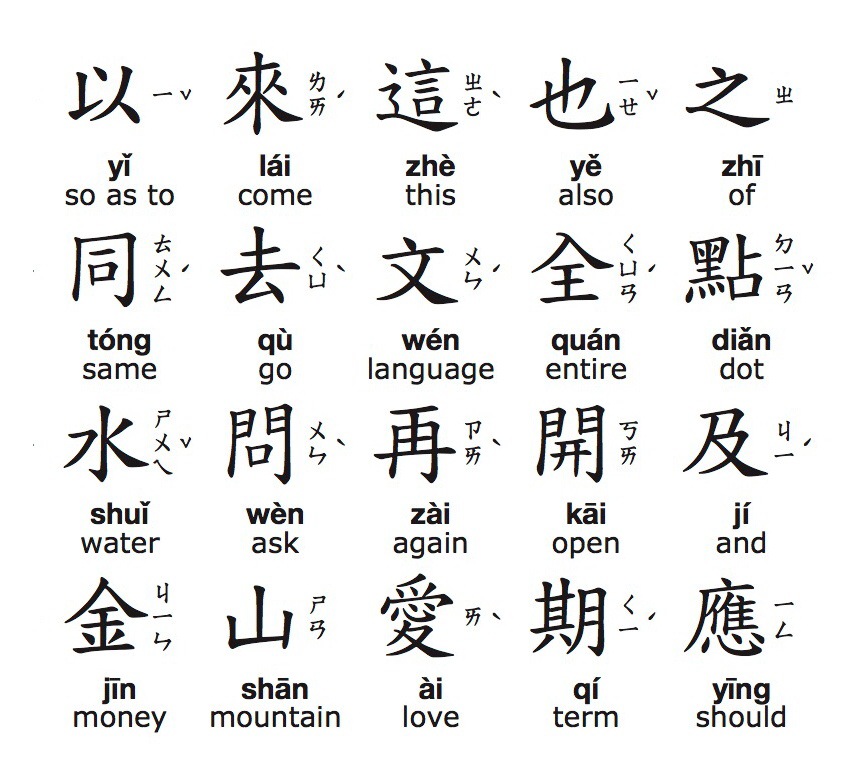
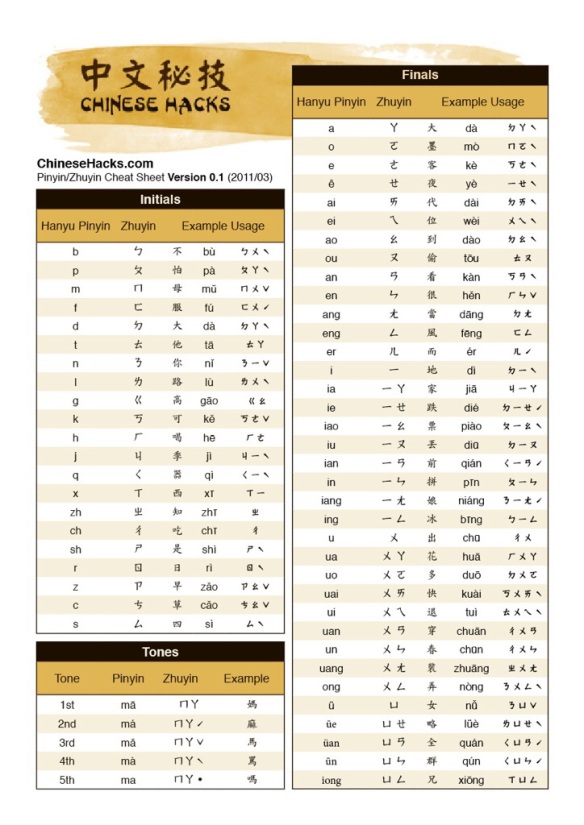
I think using Zhuyin from the start would result in slower but better pronunciation in many cases, simply because people would be forced to stop reading and actually listen to what the teacher says instead. Still, with a competent teacher, that doesn’t matter much, because s/he would teach pronunciation properly anyway, which means that it’s not very important which system you use if your teacher is good. The problem is that most teachers aren’t good, so I think having a new system to represent new sounds is better than having an old system to represent new sounds. I still don’t teach Zhuyin because most people don’t want to learn it and I can’t back up my claim above with research (the only experiments I’ve read were inconclusive or showed no significant differences). Also, since all symbols are unknown, the basics take longer to teach (some sounds are actually very close to English, but you still need new symbols for them). I personally use only Hanyu Pinyin simply because I type ten times faster than I would if I switched. I know both systems, though.
LikeLike
Can you recommend a book that has characters and zhuyin. I am trying to learn bopomofo. I am in taiwan.
LikeLike
Having gone to a Taiwanese class, I learned zhuyin long before I even heard of pinyin. I find that pinyin is easier to type, and can be more convenient at times, but it will never replace zhuyin in my mind. You are exactly right; if you know a romance language, your mind will immediately form words out of pinyin! Individual letters can be tricky: It’s hard to get your mind to think of a “ts” sound, for example, when you see “c”, and so forth.
Zhuyin is excellent at training beginner’s ear to hear the true Chinese sounds. Your mind has no preset notions about how the symbols sound. Spending the extra effort to learn zhuyin is well-worth it and rewarding.
My opinion Is: learn zhuyin first, then use pinyin if you find it convenient (and, well, you’ll probably have to learn it at some point since everyone else is using it, ha).
LikeLike
As a mainland Chinese, I found that learning Zhuyin gave me another perspective on how words are pronounced. I feel that it makes more sense than Pinyin. Although, I don’t have the problem with accidentally recognizing Pinyin as other languages because I only know Chinese, English, Japanese, and Russian (English is the only one out of these that use a Latin script). For me, it is not entirely practical, but it was very fun learning Zhuyin and I will definitely continue to use it alongside Pinyin in the future.
LikeLike